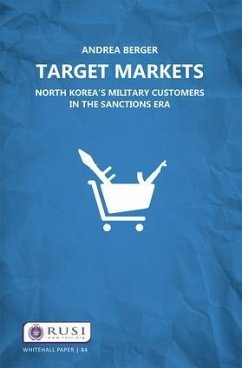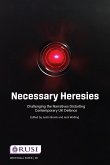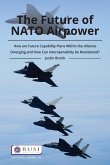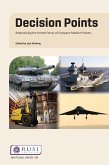A UN arms embargo has been in place against North Korea for nearly a decade, as part of a broader sanctions regime designed to deny it the goods and funds needed to fuel its nuclear weapons and ballistic-missile programmes. Yet despite these sanctions, a host of state and non-state actors continue to buy arms, material and services from Pyongyang - and inject funds into the same coffers that drive North Korea's nuclear and missile development. While some of North Korea's military customers in the sanctions era since 2006 are well known - such as Iran, Syria and Burma - Pyongyang's wider client base receives little international attention. North Korea has continued to enjoy access to other defence markets across Africa and the Middle East. The drivers of these clients' decisions to buy weapons and related goods from North Korea are rarely discussed. This gap in analysis is essential to fill. If tailored and effective approaches are to be developed to convince North Korea's customers to buy elsewhere, they must be based on a sound understanding of the considerations that motivated the client to turn to Pyongyang in the first place. Target Markets comprehensively analyses the available information on these procurement decisions. It concludes, contrary to conventional wisdom, that the reasons that customers buy weapons and related goods and services from North Korea vary, often greatly. This study also concludes that one of the greatest achievements of the UN sanctions regime to date has been to deny North Korea access to modern conventional weapons technology that it can learn to manufacture at home and sell on to its clients around the world. Without more contemporary wares to tempt foreign buyers, North Korea will likely continue to see its client list for weapons and related goods and services shrinking.
Hinweis: Dieser Artikel kann nur an eine deutsche Lieferadresse ausgeliefert werden.
Hinweis: Dieser Artikel kann nur an eine deutsche Lieferadresse ausgeliefert werden.








